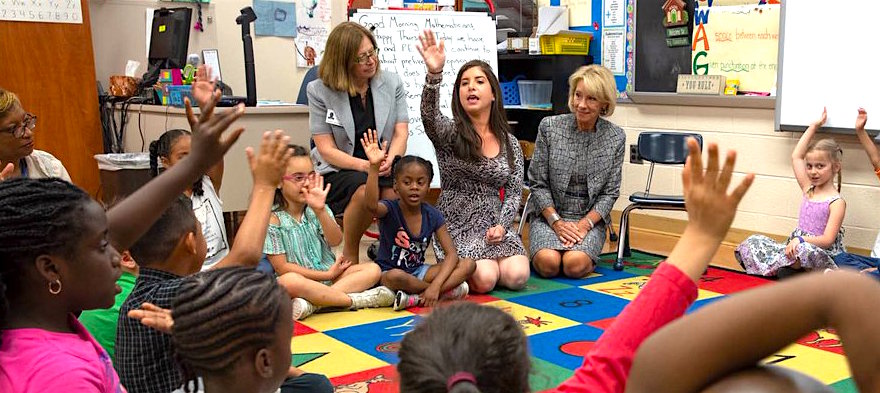
Mar 29, 2019 12:00:00 AM
by Lane Wright
Students may be better served by being in larger classes, if by hiring fewer teachers, a district or state can better compensate those who have demonstrated high ability and outstanding results.For some teachers, that was a shocking revelation. Not that she wanted to pay teachers more who have “demonstrated high ability and outstanding results,” but that she would even suggest “larger classes” and “fewer teachers.” I get why teachers want small classes. Trying to understand the academic, social and all-around human needs of dozens of individual children in a class is a daunting task. Bigger classes make their jobs harder, especially if they don’t have the tools and resources they need. So [pullquote position="right"]the idea of larger class sizes and fewer teachers is understandably alarming.[/pullquote] I also get why teachers would be dismissive of research that contradicts their world view—they’re the ones in the classroom, right? But the fact is, shrinking classes doesn’t get us the desired results we all want to see for our students. The only exceptions are for the very early K-3 grades, or when classrooms are reduced dramatically. In fact, since Florida made a class size amendment part of its constitution in 2002, some school districts have been fighting it because it’s simply impractical. Teachers, on the other hand, have more of an impact on student learning than anything else at school. There’s tons of research to back that up, which is probably why DeVos made the statement she did—that the very best teachers should be paid more to handle more. Spending money on teachers with a proven track record is money well spent! So let’s keep the big picture in mind and put our finite resources where they’ll have the biggest impact: Paying great teachers more.
Lane Wright is Director of Communications and Advocacy for the National Council on Teacher Quality, and formerly served as Director of Strategic Growth for Education Post and brightbeam. Lane has more than 18 years of experience in strategic communications and education advocacy. He tells stories that help families understand how their schools are doing, how to make them better, and how policy plays a role.
Few issues in education spark more tension and debate than standardized testing. Are they a tool for equity or a burden on students? A necessary check on school systems or a flawed measure of...
Charter schools are public schools with a purpose. Operating independently from traditional school districts, they're tuition-free, open to all students, and publicly funded—but with more flexibility...
Despite the benefits of a diverse teaching force, prospective teachers of color fall out of our leaky preparation pipeline at every stage: preparation, hiring, induction, and retention. Here’s what...
Ed Post is the flagship website platform of brightbeam, a 501(c3) network of education activists and influencers demanding a better education and a brighter future for every child.
© 2020-2025 brightbeam. All rights reserved.
Leave a Comment